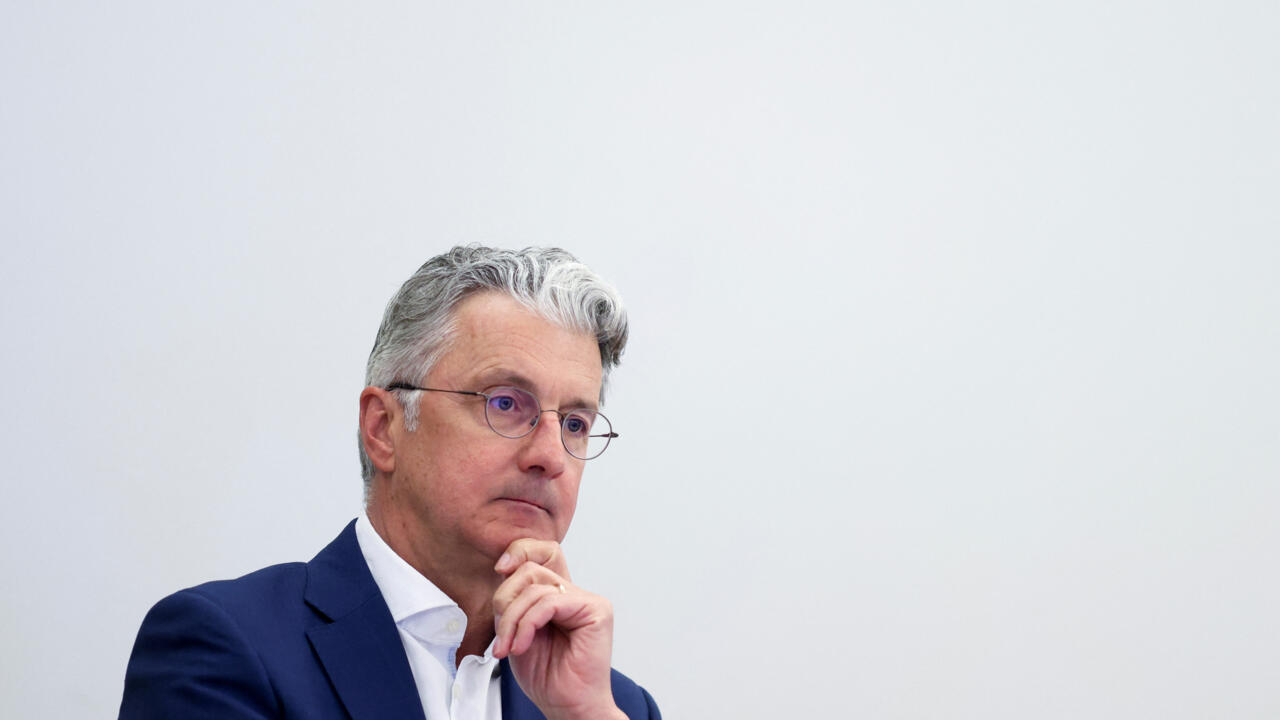Ex-Audi CEO to plead guilty in exchange for suspended sentence over ‘dieselgate’ scandal

Issued on: 03/05/2023 – 11:30Modified: 03/05/2023 – 16:11
Former Audi CEO Rupert Stadler will plead guilty in the “dieselgate” scandal — in which parent company VW admitted it had rigged emissions tests — in exchange for a suspended sentence, a German court said Wednesday.
Former Audi boss Rupert Stadler will plead guilty over the “dieselgate” vehicle emissions-cheating scandal, a German court said Wednesday, which would make him the first auto CEO to be convicted in the resulting lawsuits.
Stadler will admit guilt in exchange for a suspended sentence after reaching an agreement with the Munich district court over the scandal that rocked Audi’s parent company Volkswagen.
German car giant VW — whose subsidiaries include Porsche, Audi, Skoda and Seat — admitted in September 2015 that it had installed software to rig emission levels in 11 million diesel vehicles worldwide.
The so-called defeat devices made the vehicles appear less polluting in lab tests than they were on the road.
After a trial that started in late 2020, Stadler’s defence lawyers and prosecutors had finally accepted a “plea bargain proposal”, a court spokesman told AFP.
“According to the proposal, Mr Stadler will receive a suspended sentence of 18 to 24 months if he confesses. In addition, he will have to pay 1.1 million euros ($1.2 million),” he said.
The confession is expected to be read out in two weeks, with the court’s ruling expected in June.
Stadler, 60, had previously denied the charges of fraud, falsifying certifications and false advertising against him.
Last month Wolfgang Hatz, another former Audi executive who was on trial alongside Stadler, pleaded guilty, confessing that he and two other colleagues had arranged the installation of emissions-cheating software.
His defence team and the court recommended a suspended sentence of 18 to 24 months, though prosecutors have objected.
Diesel trickery
Volkswagen had always insisted that the diesel trickery was the work of a handful of lower-level employees acting without the knowledge of their superiors, a claim challenged by prosecutors.
Stadler had been Audi’s chief executive for 11 years when he was arrested in June 2018.
He spent four months in pretrial detention owing to prosecution concerns that he would try to influence witnesses.
Prosecutors say Stadler knew about the scam by the end of September 2015 “at the latest” but he nevertheless allowed thousands more vehicles fitted with the illegal defeat devices to be sold.
He was originally put on trial alongside Hatz and two Audi engineers, one of whom has also entered a guilty plea in exchange for a suspended sentence.
The charges against them covered 434,420 Volkswagen, Audi and Porsche vehicles sold in Europe and the United States as far back as 2009.
Volkswagen’s former CEO Martin Winterkorn was supposed to stand trial for fraud over the scandal, but the case has been indefinitely postponed due to his poor health.
The “dieselgate” saga shocked Germany and is seen as the country’s biggest post-war industrial scandal.
It has already cost VW tens of billions of euros in fines, legal costs and compensation to car owners, mainly in the United States.
The fallout has also accelerated development of environmentally friendly electric vehicles, requiring huge investments in a tough economic climate.